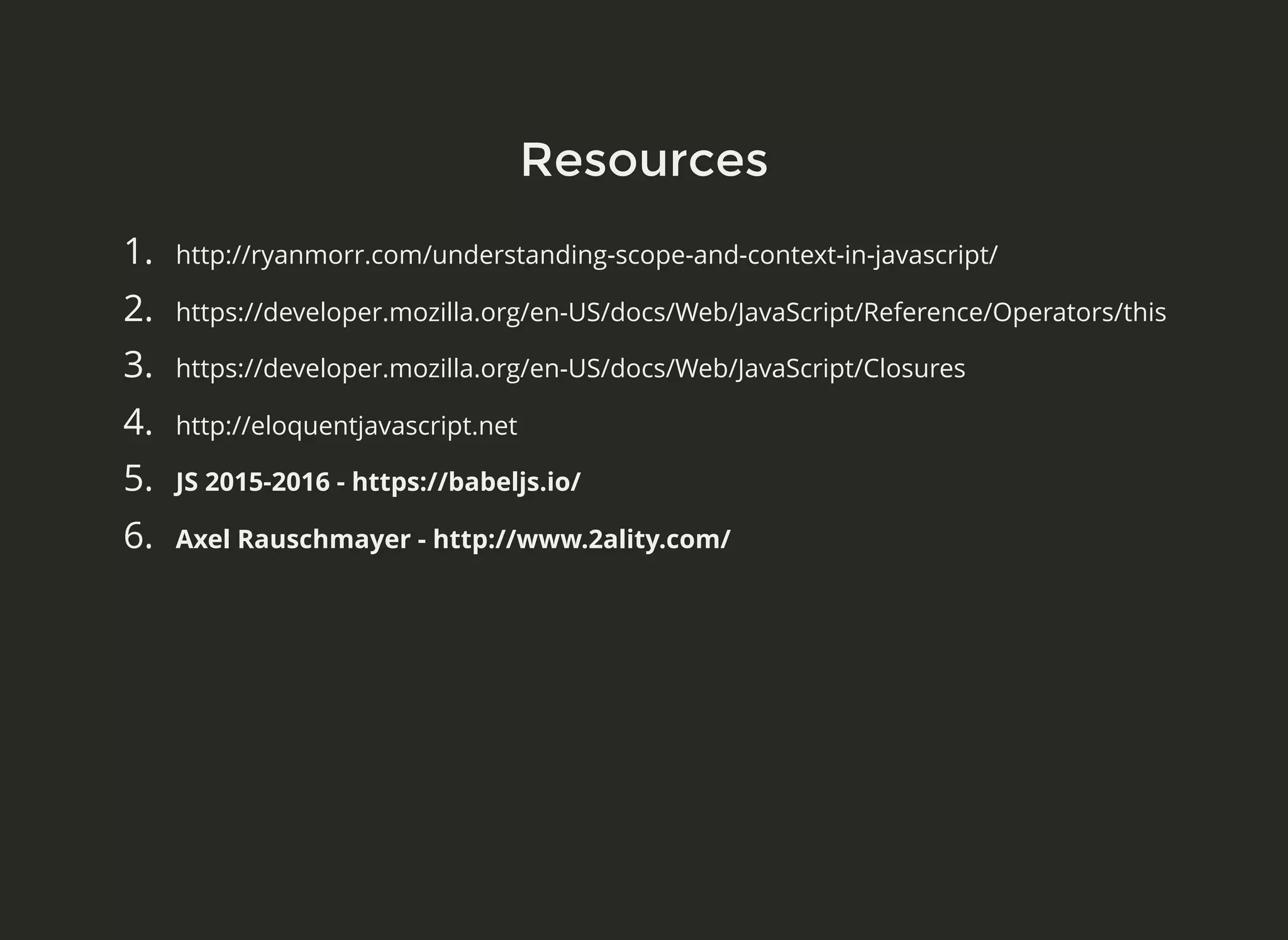The document covers JavaScript fundamentals, focusing on concepts such as scope, context, closures, and higher-order functions, with practical examples using Angular and Lodash. It emphasizes the importance of understanding how JavaScript evaluates scope, variable hoisting, and the use of the 'this' keyword in different contexts. Additionally, it integrates code snippets demonstrating various functions and methods available in Lodash for data manipulation within Angular applications.
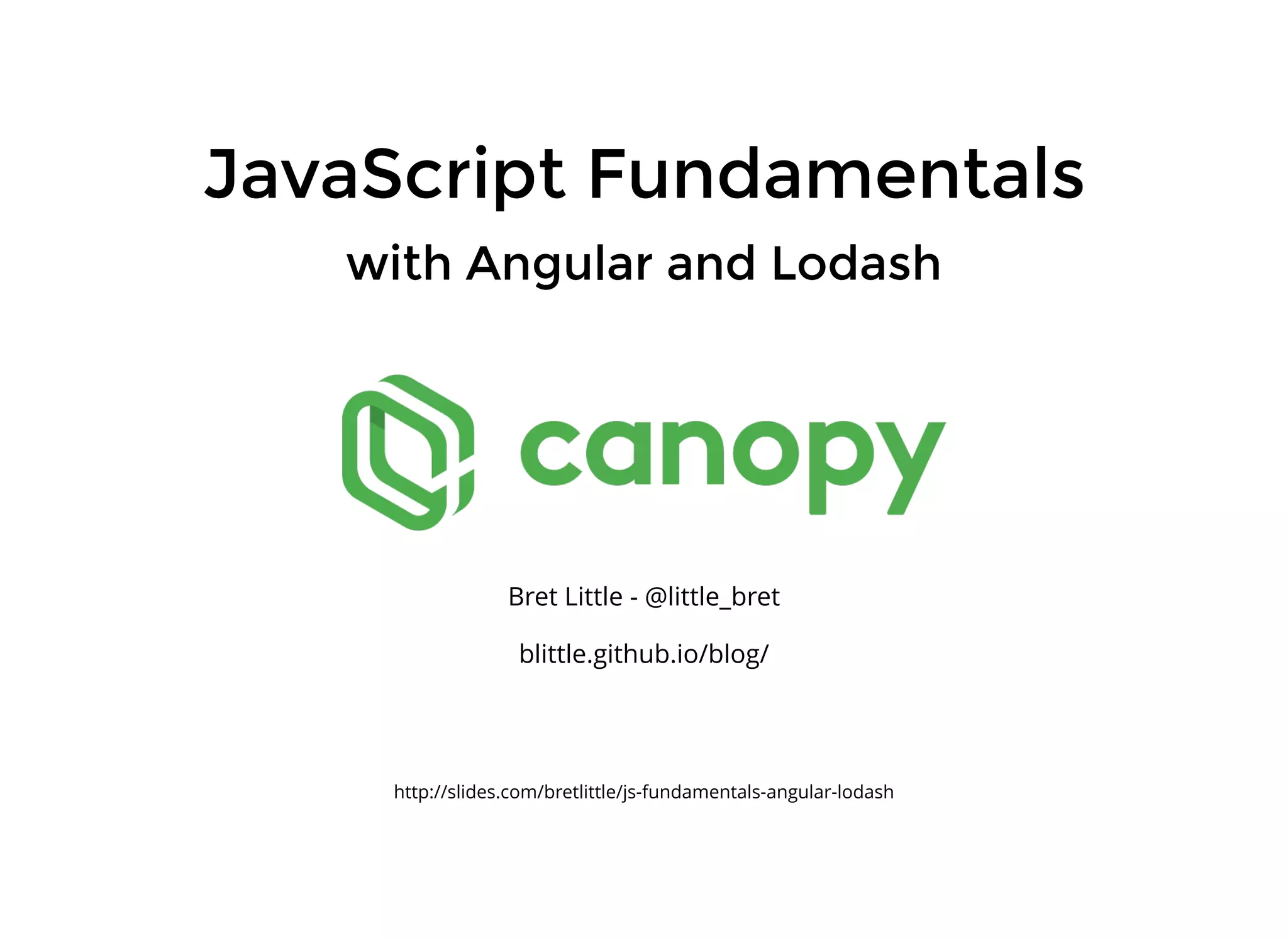
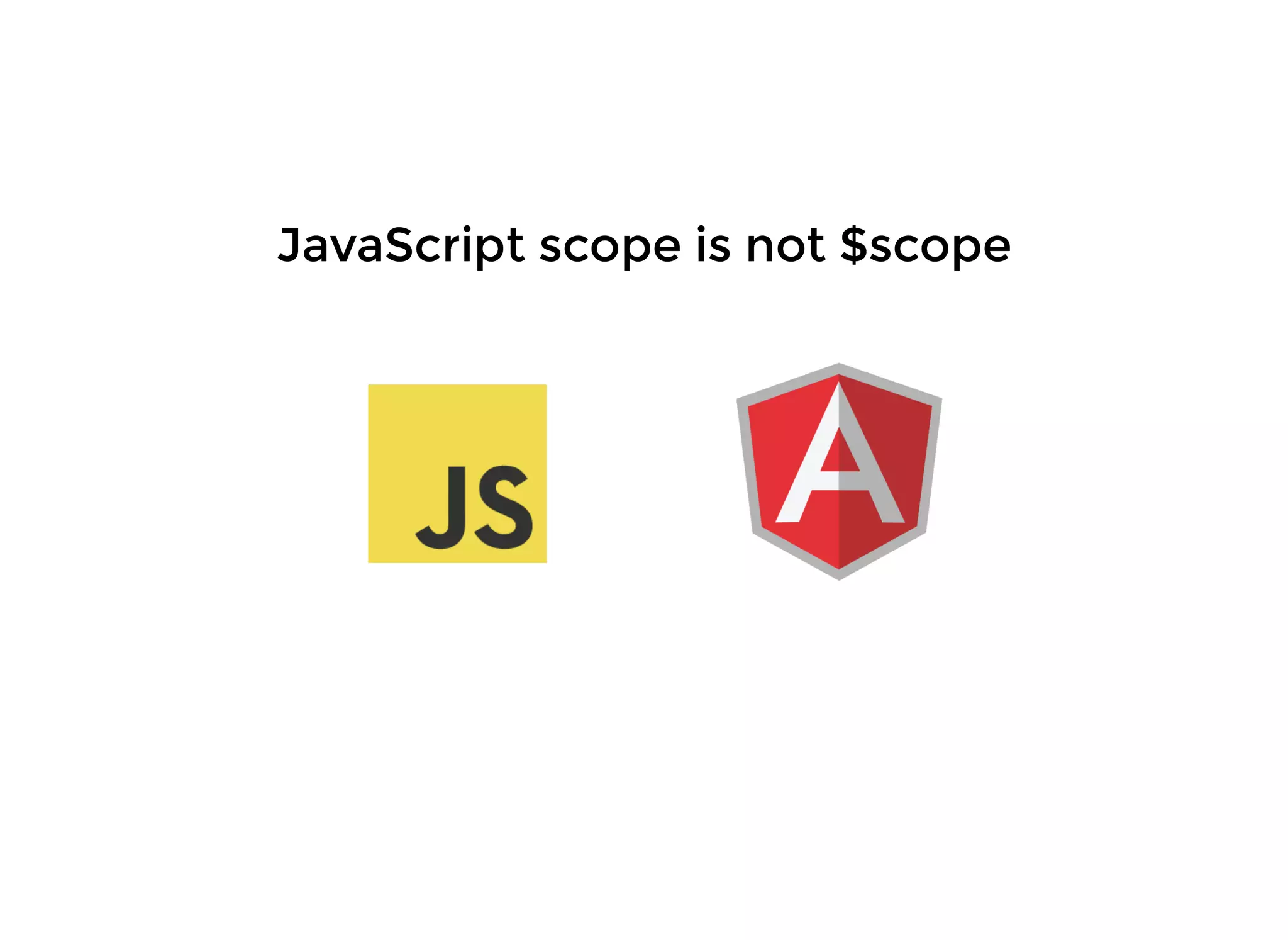
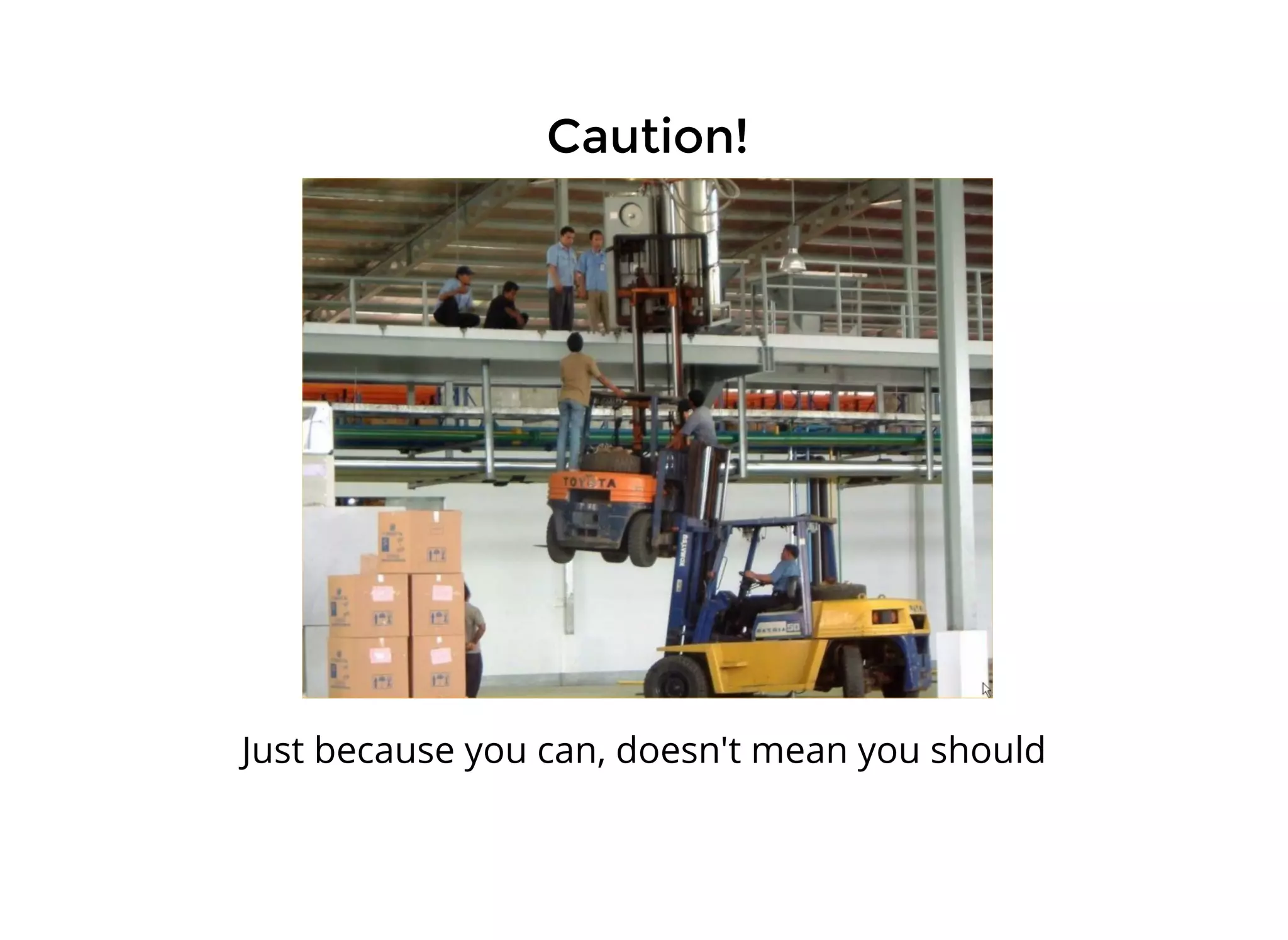
![<div class='active-users' ng-repeat='user in users | lodash:"filter":{active: true}'> {{ user.name }} </div> var users = [ { 'name': 'barney', 'age': 36, 'active': true }, { 'name': 'fred', 'age': 40, 'active': false } ] _.filter(users, { 'active': true }) // returns [{ 'name': 'barney', 'age': 36, 'active': true }]](https://image.slidesharecdn.com/js-fundamentals-angular-lodash-151006001110-lva1-app6891/75/JavaScript-Fundamentals-with-Angular-and-Lodash-4-2048.jpg)
![<div class='selected-user'> {{ users | lodash:'findWhere':{active: true, age: 36} | lodash:'result':'name' }} </div> var users = [ { 'name': 'barney', 'age': 36, 'active': true }, { 'name': 'fred', 'age': 40, 'active': false } ] _.result( _.findWhere(users, { 'active': true, 'age': 36 }), 'name' ) // returns 'barney'](https://image.slidesharecdn.com/js-fundamentals-angular-lodash-151006001110-lva1-app6891/75/JavaScript-Fundamentals-with-Angular-and-Lodash-5-2048.jpg)
![<div ng-repeat="i in 10 | lodash:'range'"> {{ $index }} </div> _.range(10); // → [0, 1, 2, 3, 4, 5, 6, 7, 8, 9]](https://image.slidesharecdn.com/js-fundamentals-angular-lodash-151006001110-lva1-app6891/75/JavaScript-Fundamentals-with-Angular-and-Lodash-6-2048.jpg)
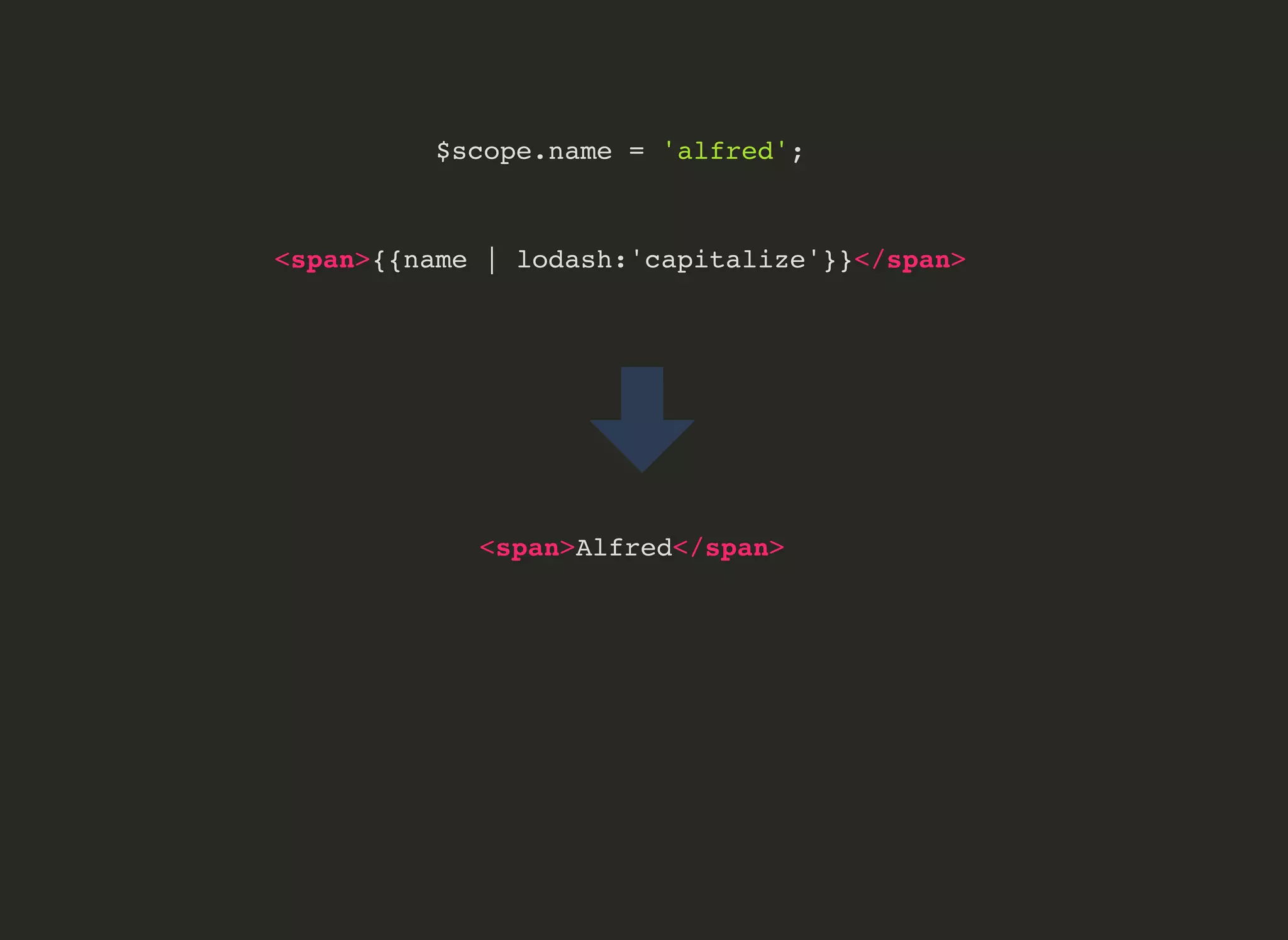
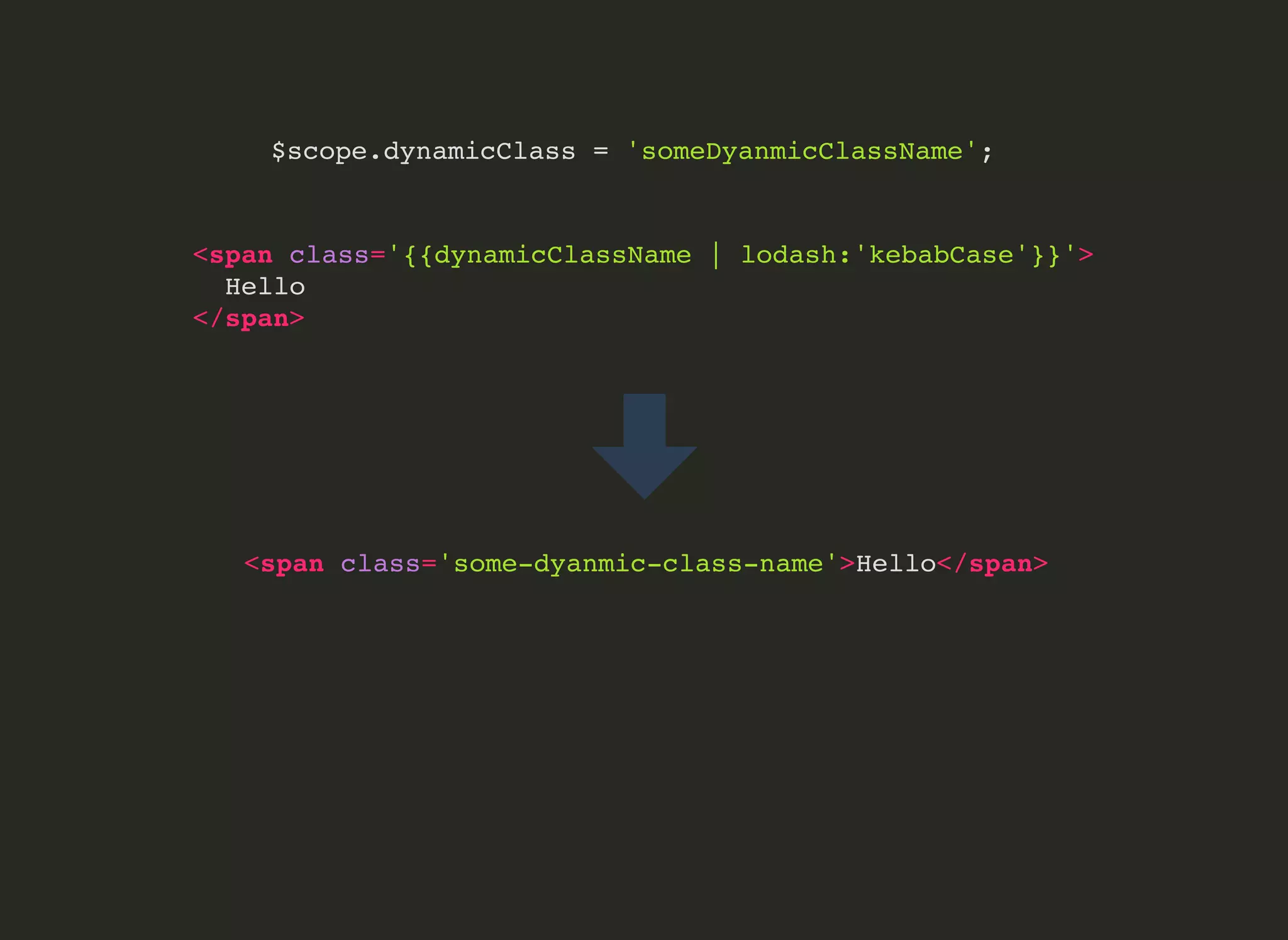
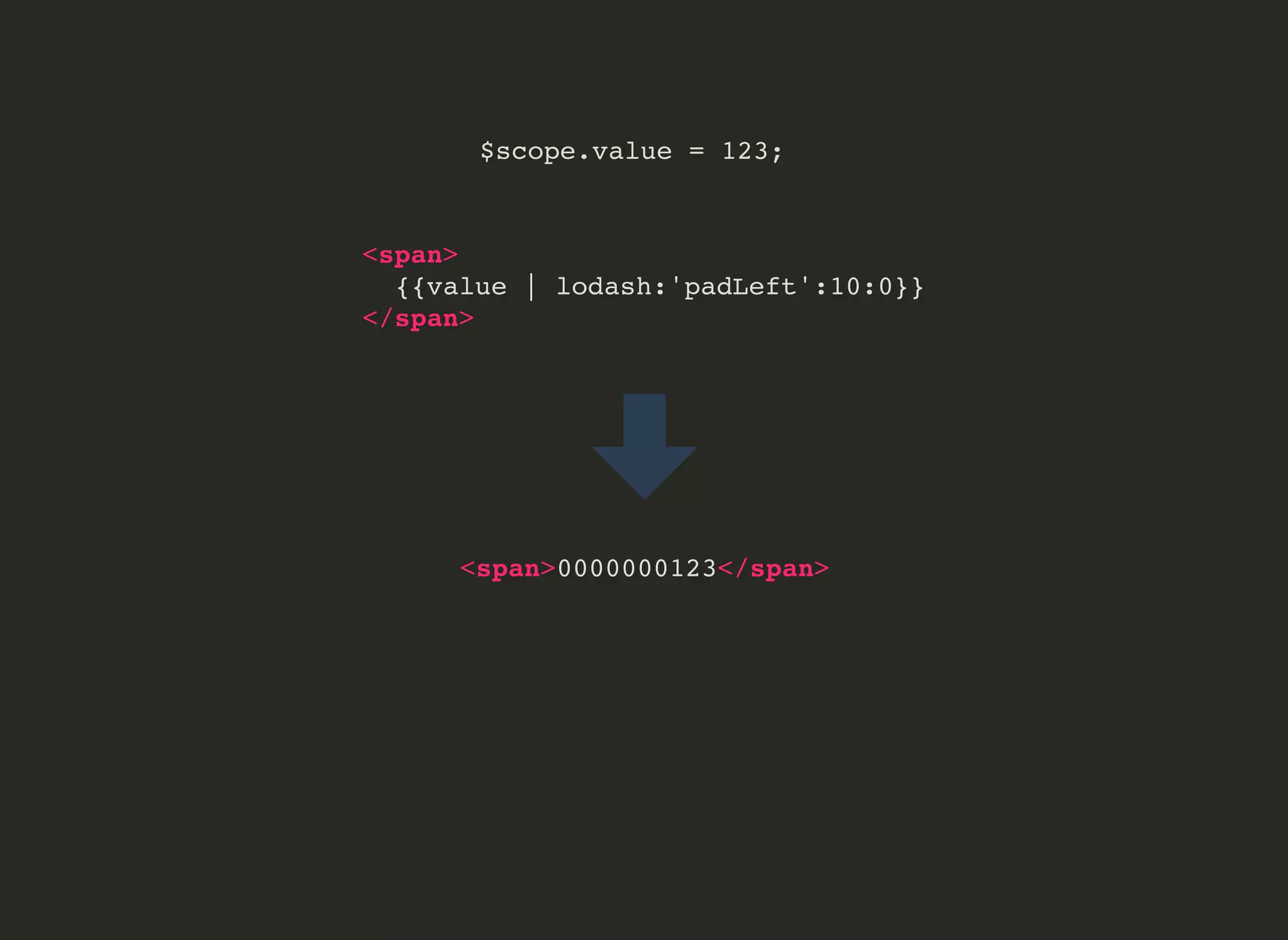
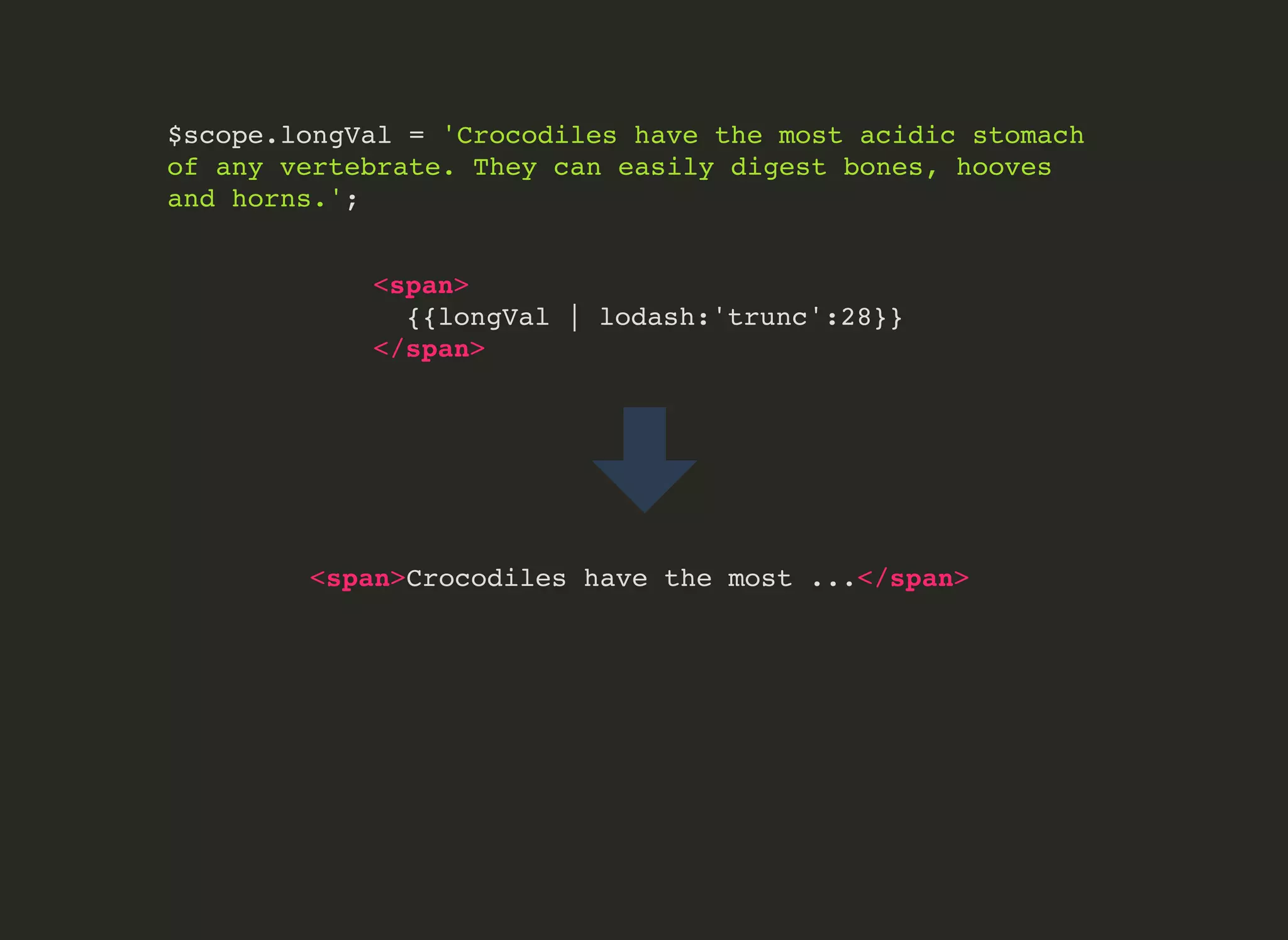
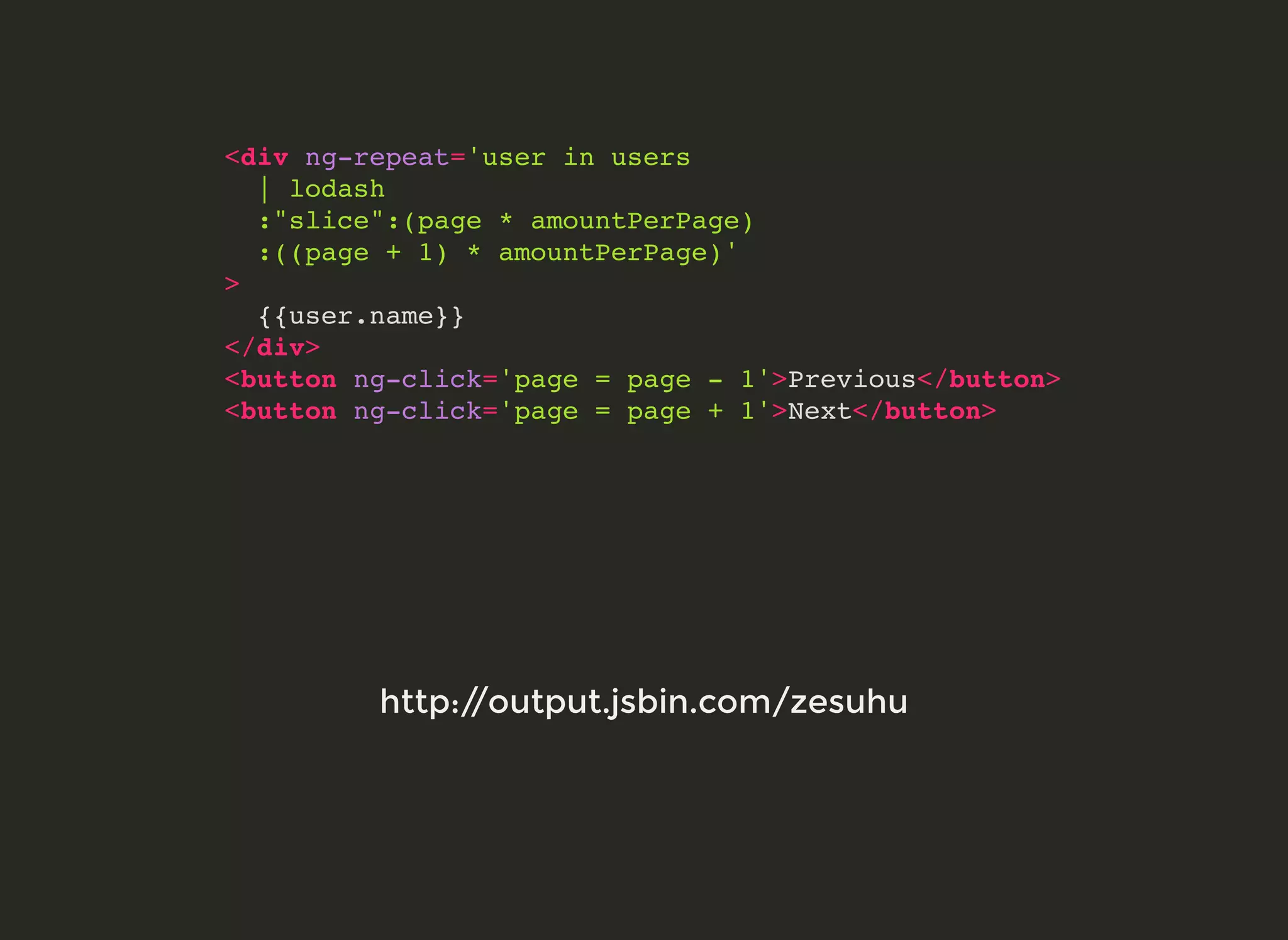
![angular.module('myApp') .filter('lodash', function() { return function(input, method) { var args = [input].concat( Array.prototype.slice.call(arguments, 2) ); return _[method].apply(_, args); } });](https://image.slidesharecdn.com/js-fundamentals-angular-lodash-151006001110-lva1-app6891/75/JavaScript-Fundamentals-with-Angular-and-Lodash-12-2048.jpg)
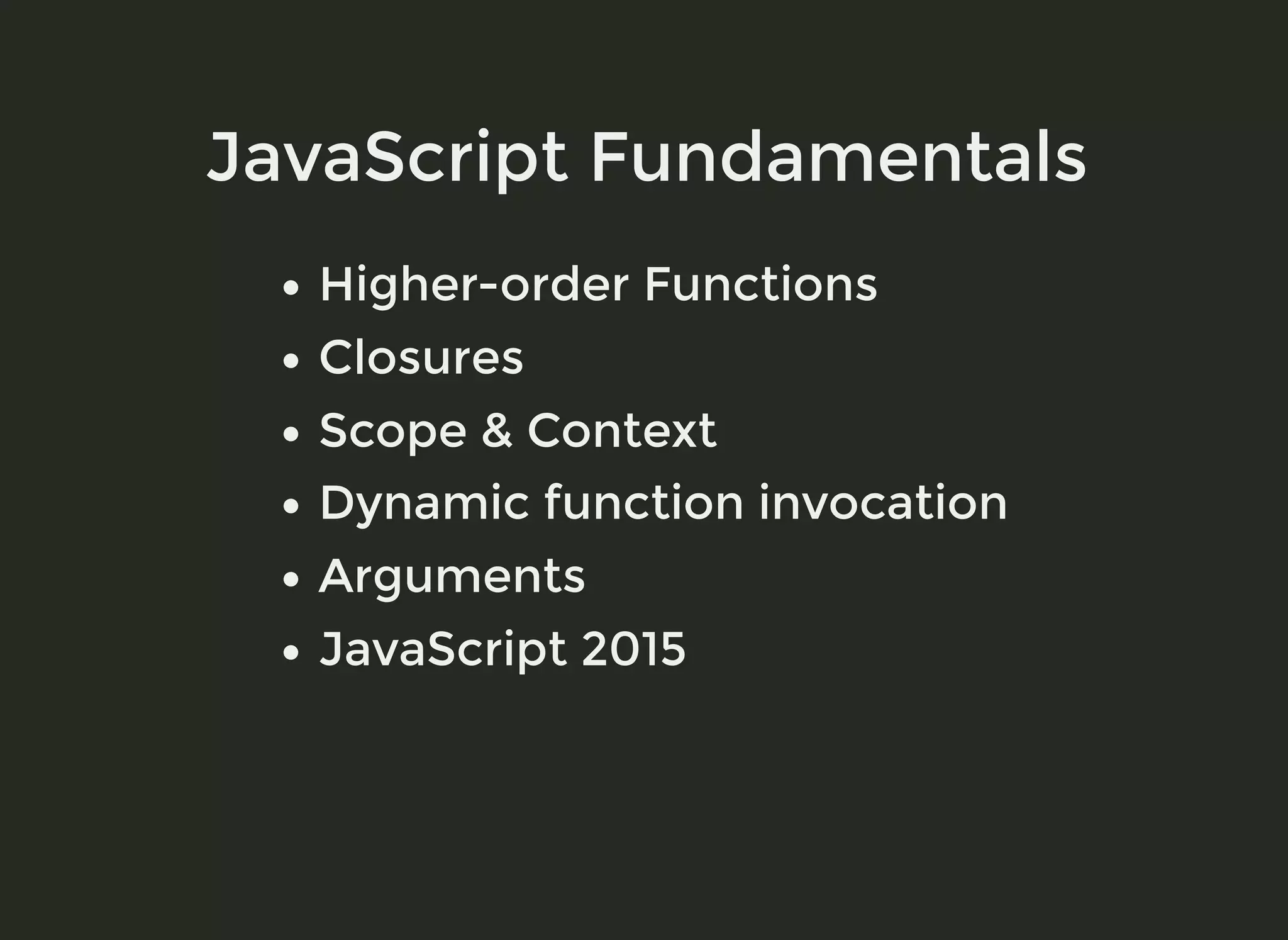
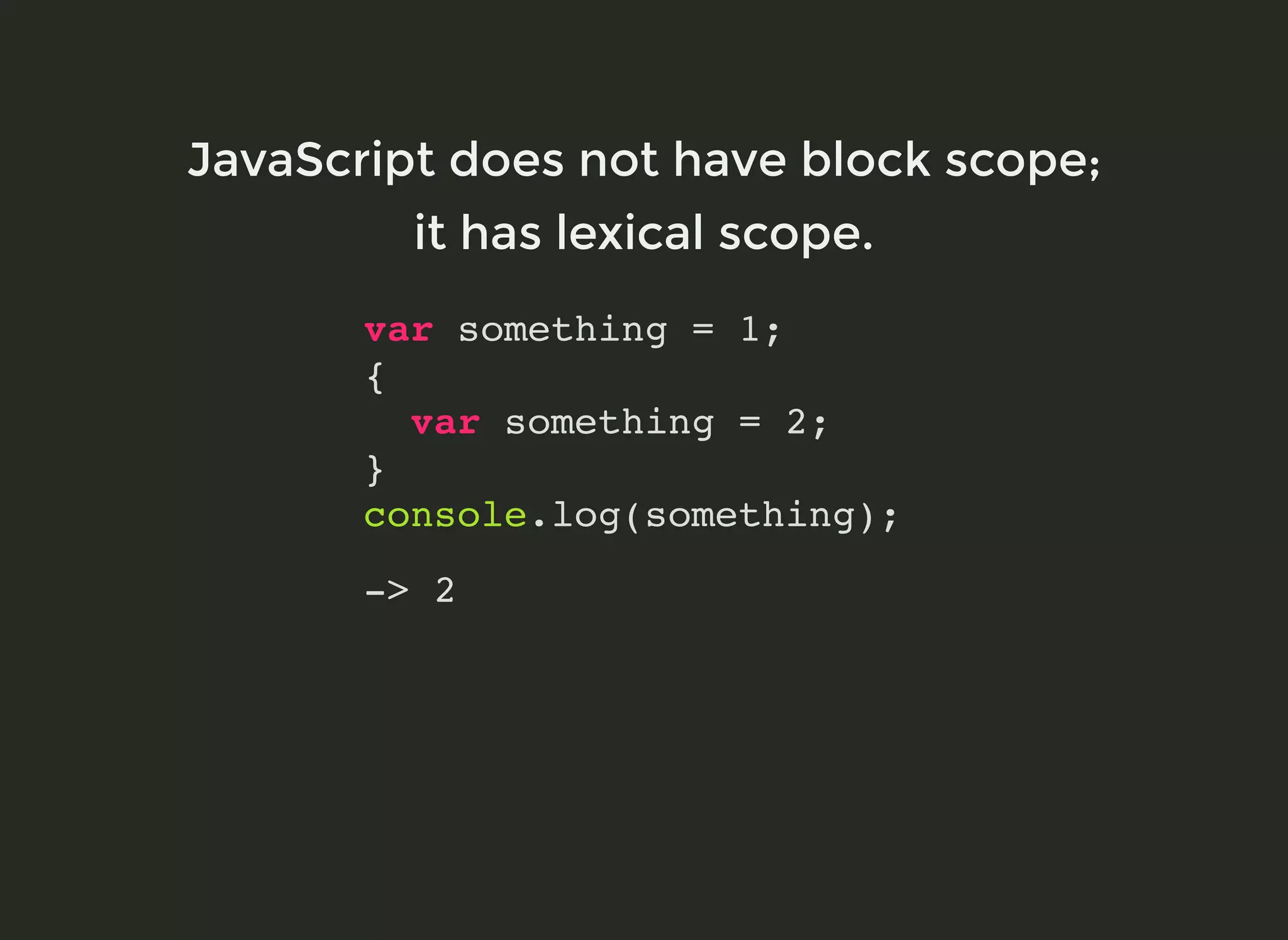
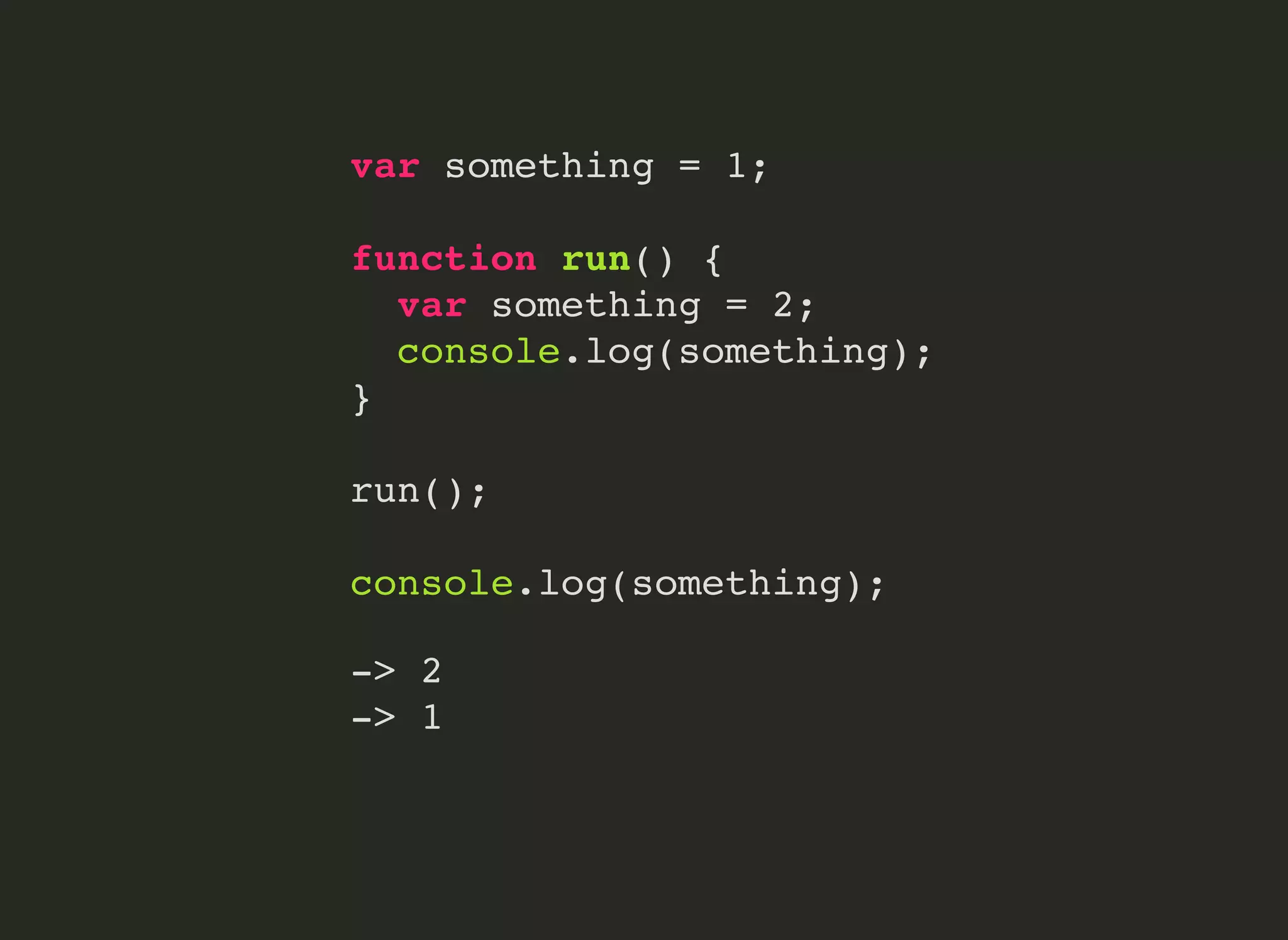
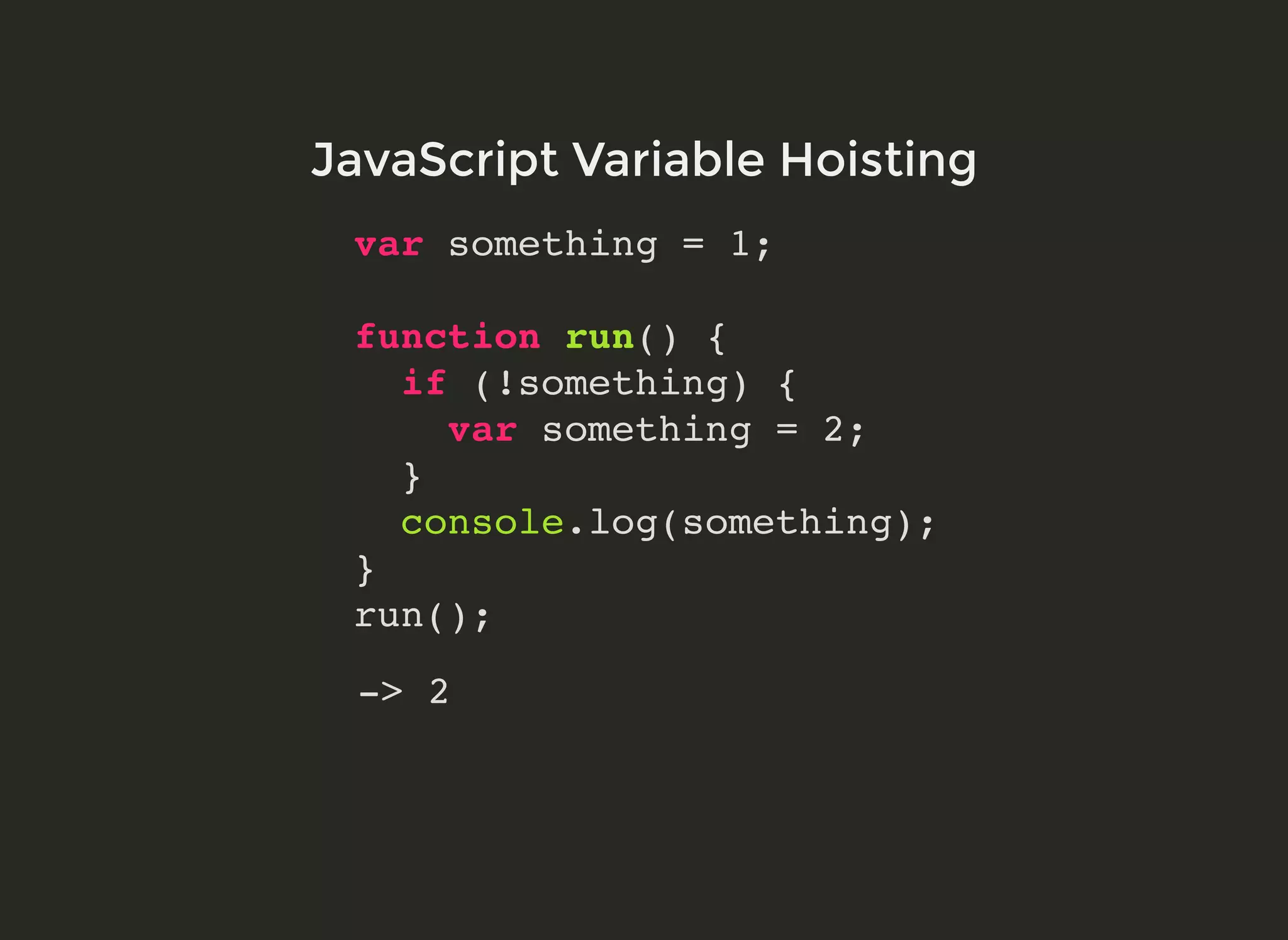
![angular.module('myApp') .filter('lodash', function() { return function(input, method) { var args = [input].concat( Array.prototype.slice.call(arguments, 2) ); return _[method].apply(_, args); } });](https://image.slidesharecdn.com/js-fundamentals-angular-lodash-151006001110-lva1-app6891/75/JavaScript-Fundamentals-with-Angular-and-Lodash-17-2048.jpg)
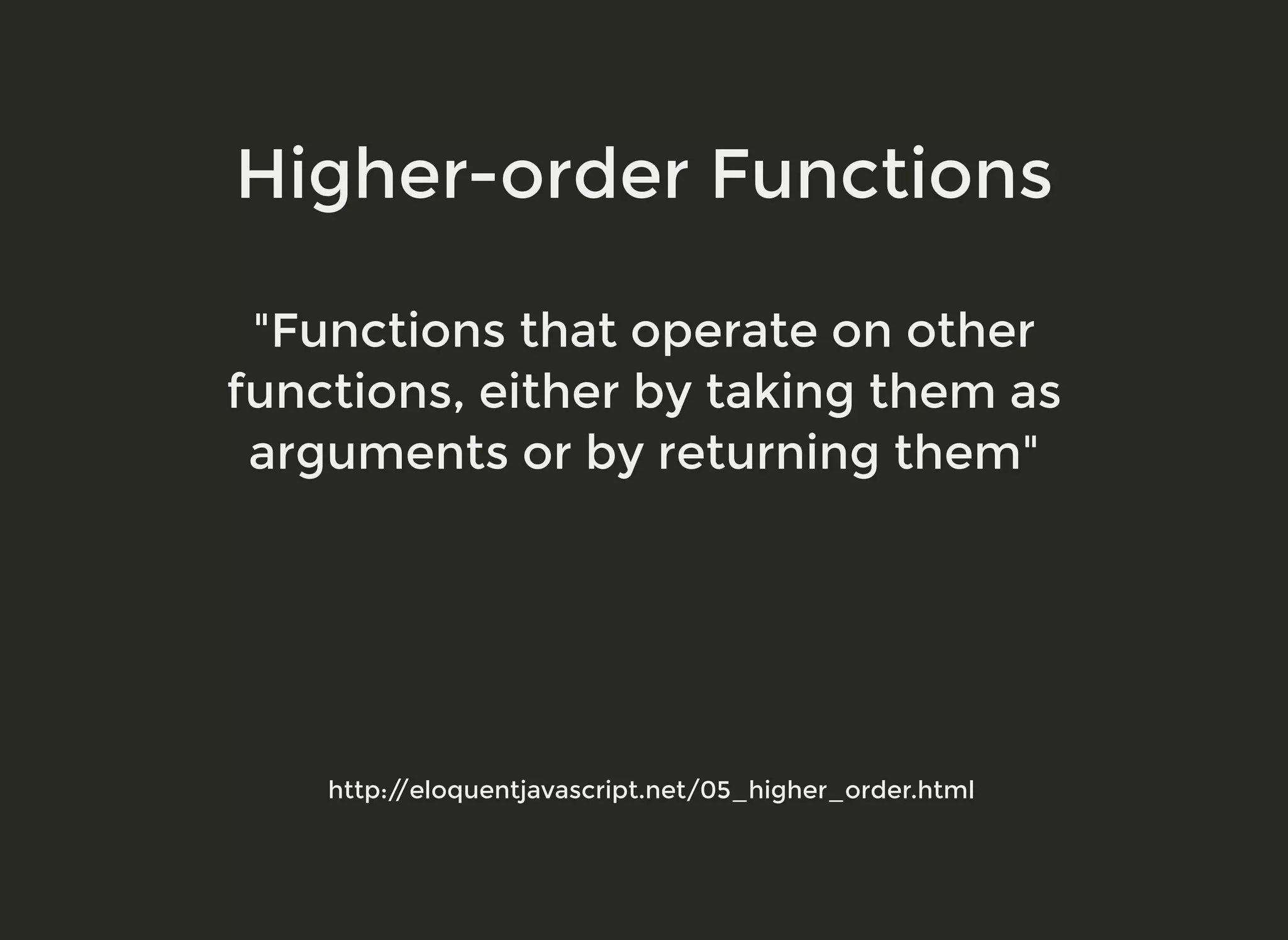
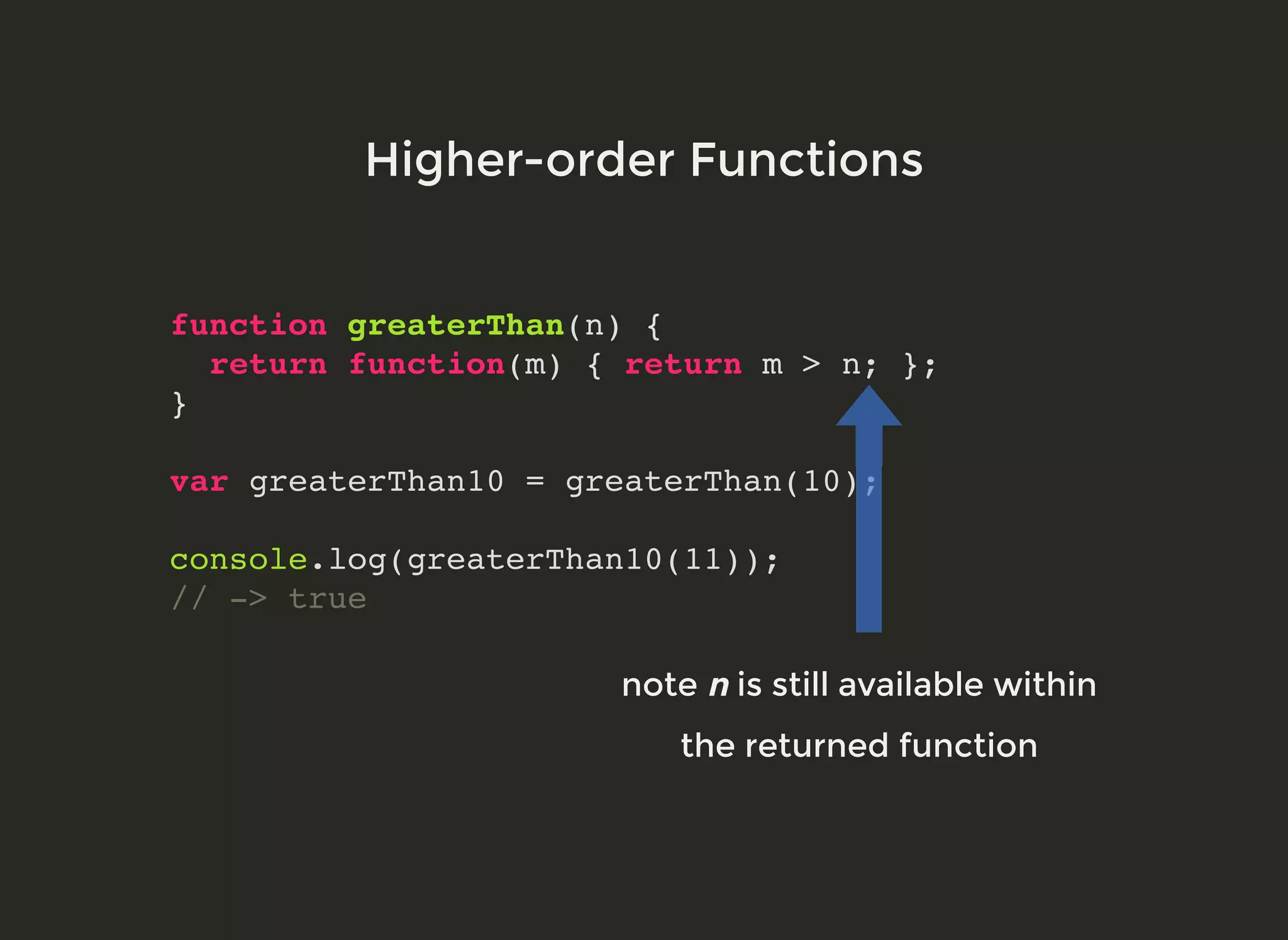
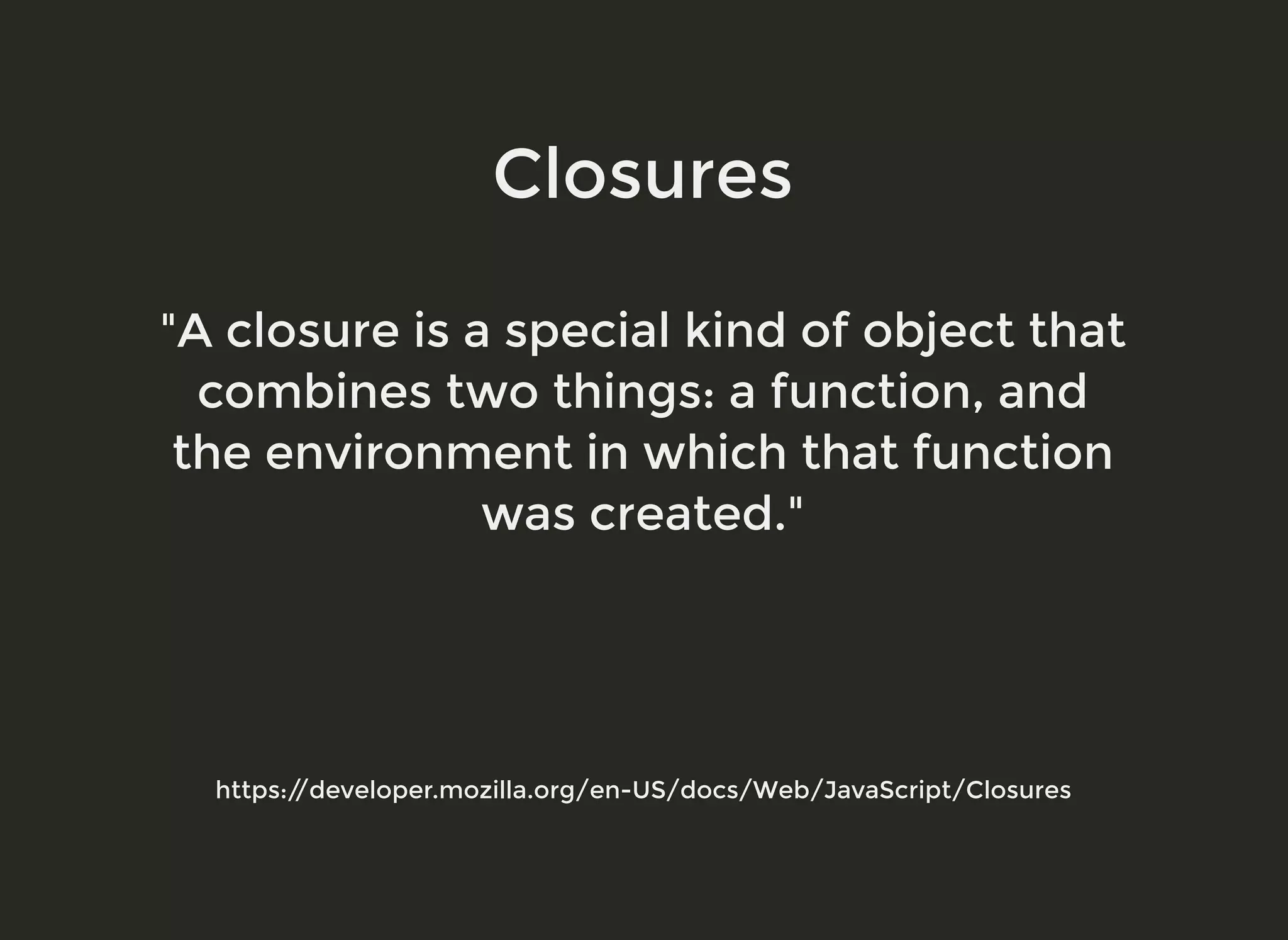
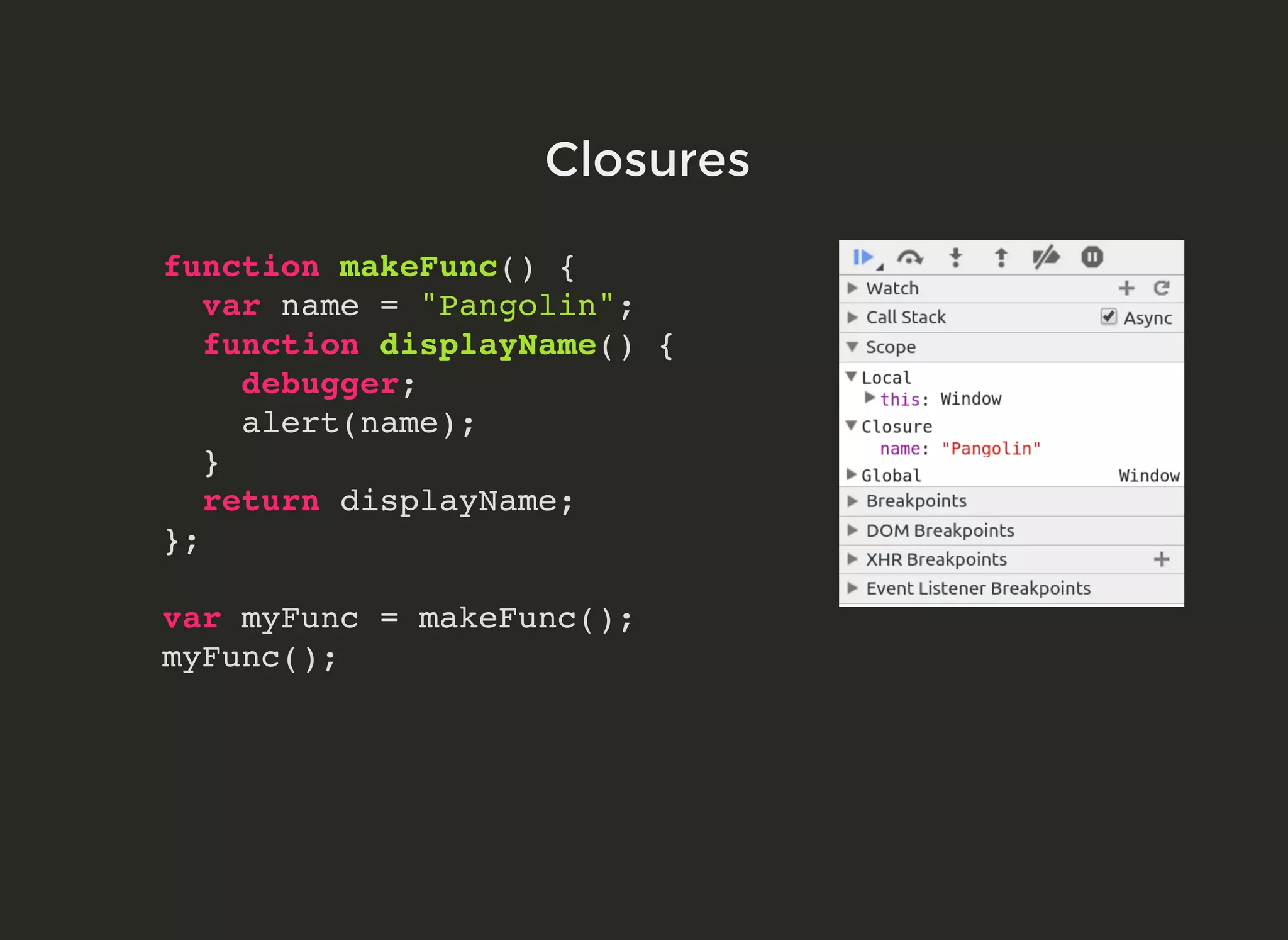
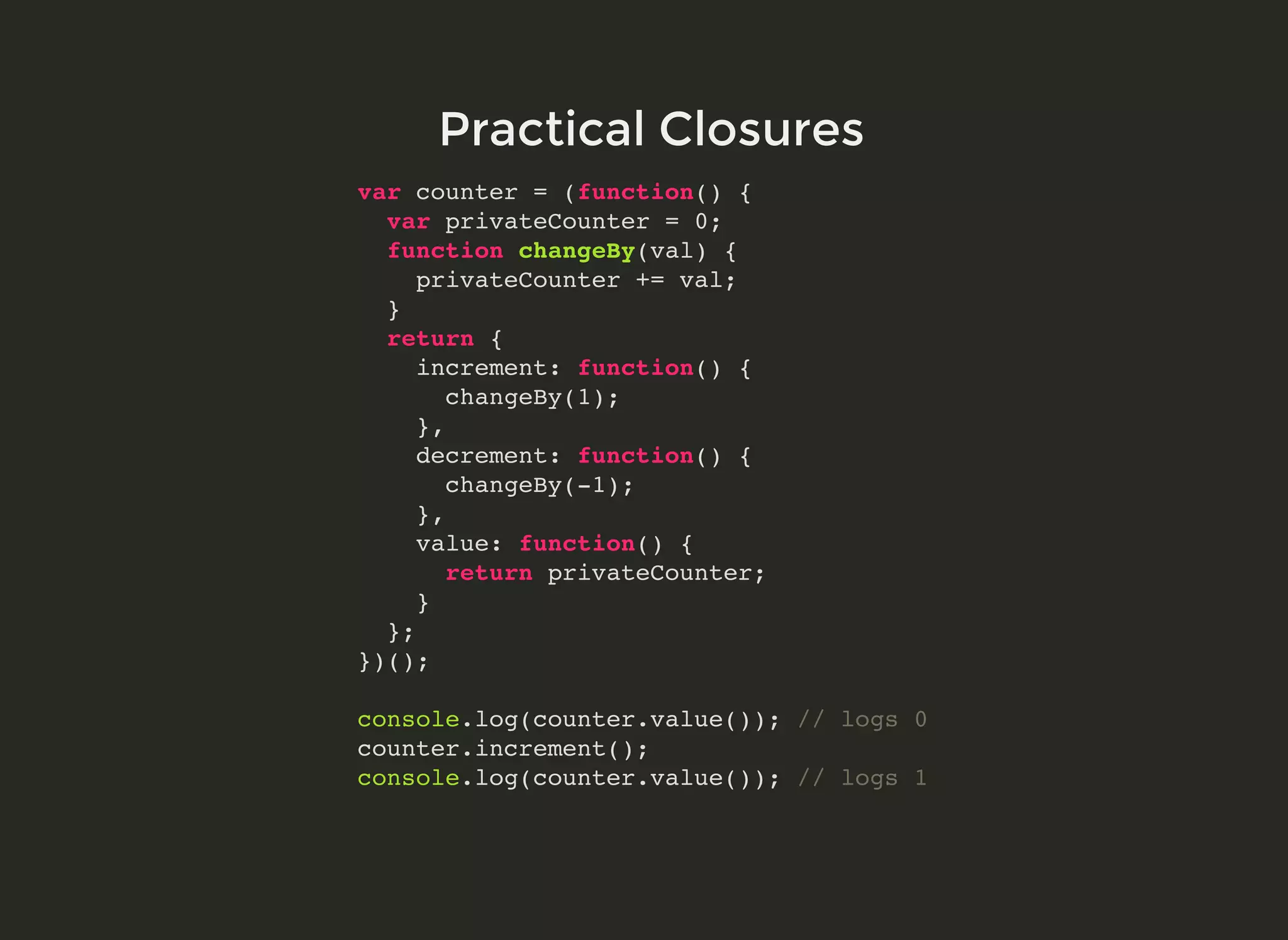
![angular.module('myApp') .filter('lodash', function(someService) { return function(input, method) { var args = [input].concat( Array.prototype.slice.call(arguments, 2) ); return _[method].apply(_, args); } });](https://image.slidesharecdn.com/js-fundamentals-angular-lodash-151006001110-lva1-app6891/75/JavaScript-Fundamentals-with-Angular-and-Lodash-23-2048.jpg)
![angular.module('myApp') .filter('lodash', function() { return function(input, method) { var args = [input].concat( Array.prototype.slice.call(arguments, 2) ); return _[method].apply(_, args); } });](https://image.slidesharecdn.com/js-fundamentals-angular-lodash-151006001110-lva1-app6891/75/JavaScript-Fundamentals-with-Angular-and-Lodash-24-2048.jpg)
![function sayHello() { for (var i = 0, iLength = arguments.length; i < iLength; i++) { console.log('Hello', arguments[i]); } } sayHello('Chester Nimitz', 'Raymond Spruance'); Dynamic ArgumentsDynamic Arguments -> Hello Chester Nimitz -> Hello Raymond Spruance](https://image.slidesharecdn.com/js-fundamentals-angular-lodash-151006001110-lva1-app6891/75/JavaScript-Fundamentals-with-Angular-and-Lodash-25-2048.jpg)
![angular.module('myApp') .filter('lodash', function() { return function(input, method) { var args = [input].concat( Array.prototype.slice.call(arguments, 2) ); return _[method].apply(_, args); } });](https://image.slidesharecdn.com/js-fundamentals-angular-lodash-151006001110-lva1-app6891/75/JavaScript-Fundamentals-with-Angular-and-Lodash-26-2048.jpg)
![angular.module('myApp') .filter('lodash', function() { return function(input, method) { var args = [input].concat( Array.prototype.slice.call(arguments, 2) ); return _[method].apply(_, args); } });](https://image.slidesharecdn.com/js-fundamentals-angular-lodash-151006001110-lva1-app6891/75/JavaScript-Fundamentals-with-Angular-and-Lodash-27-2048.jpg)
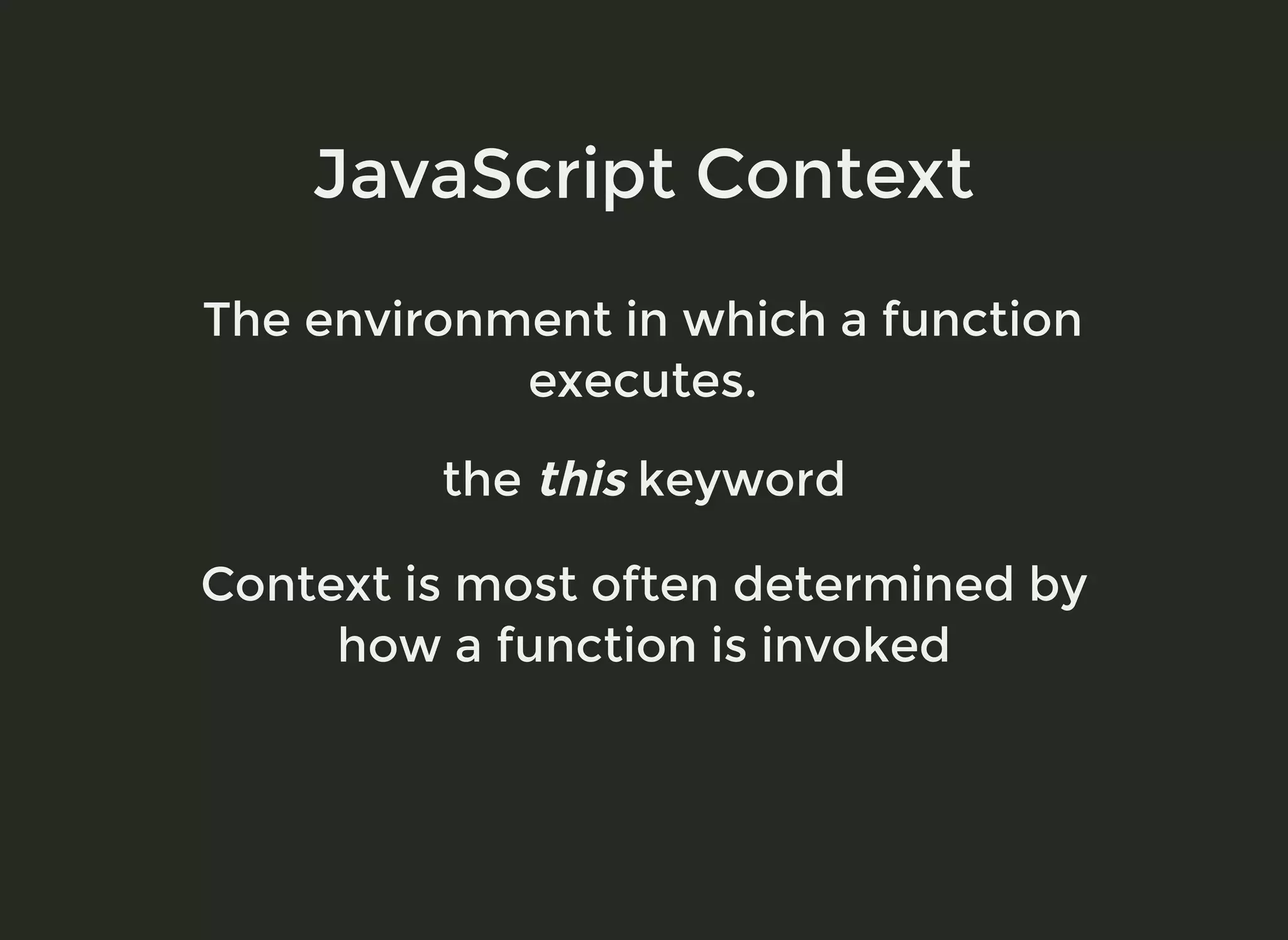
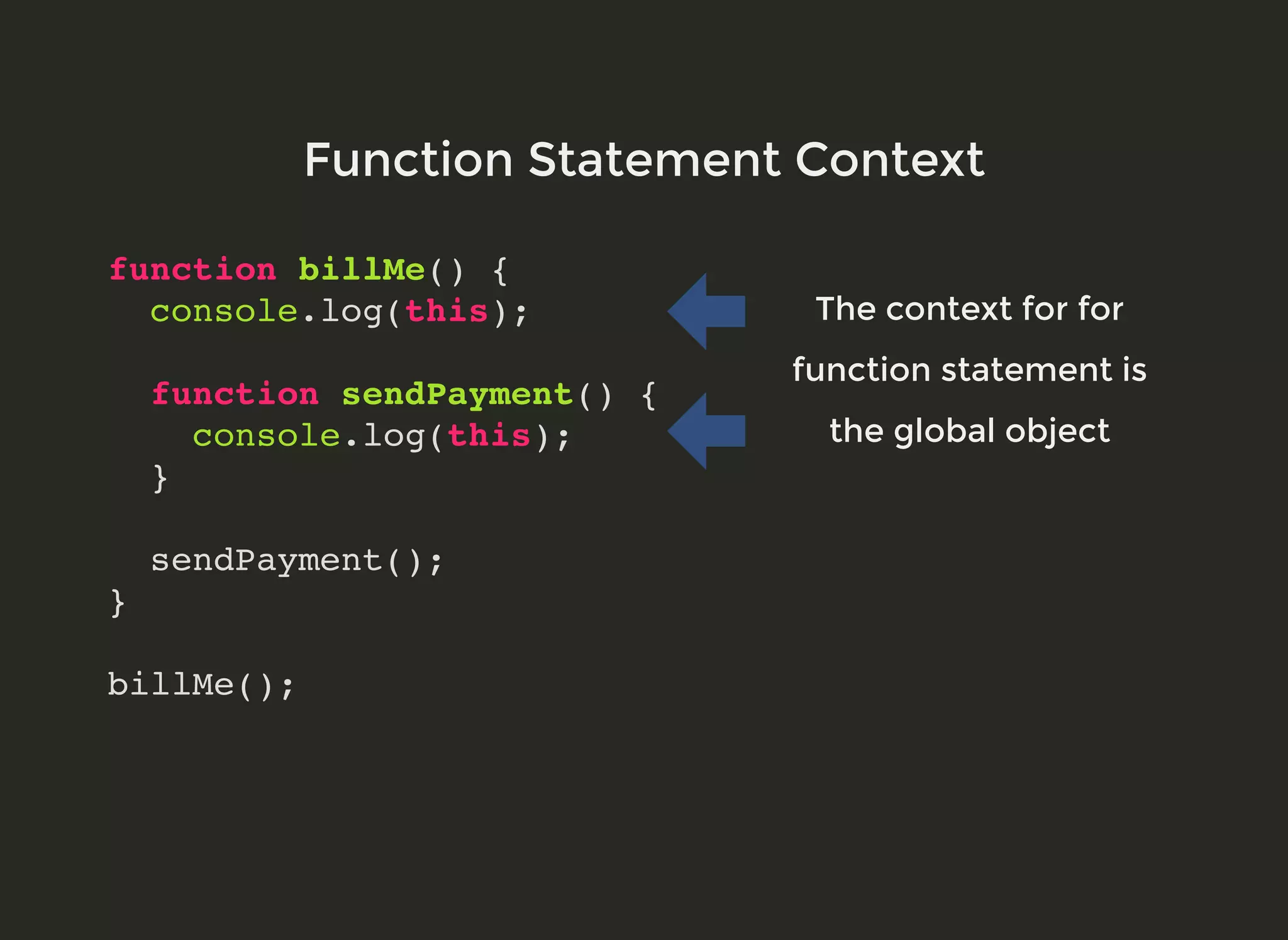
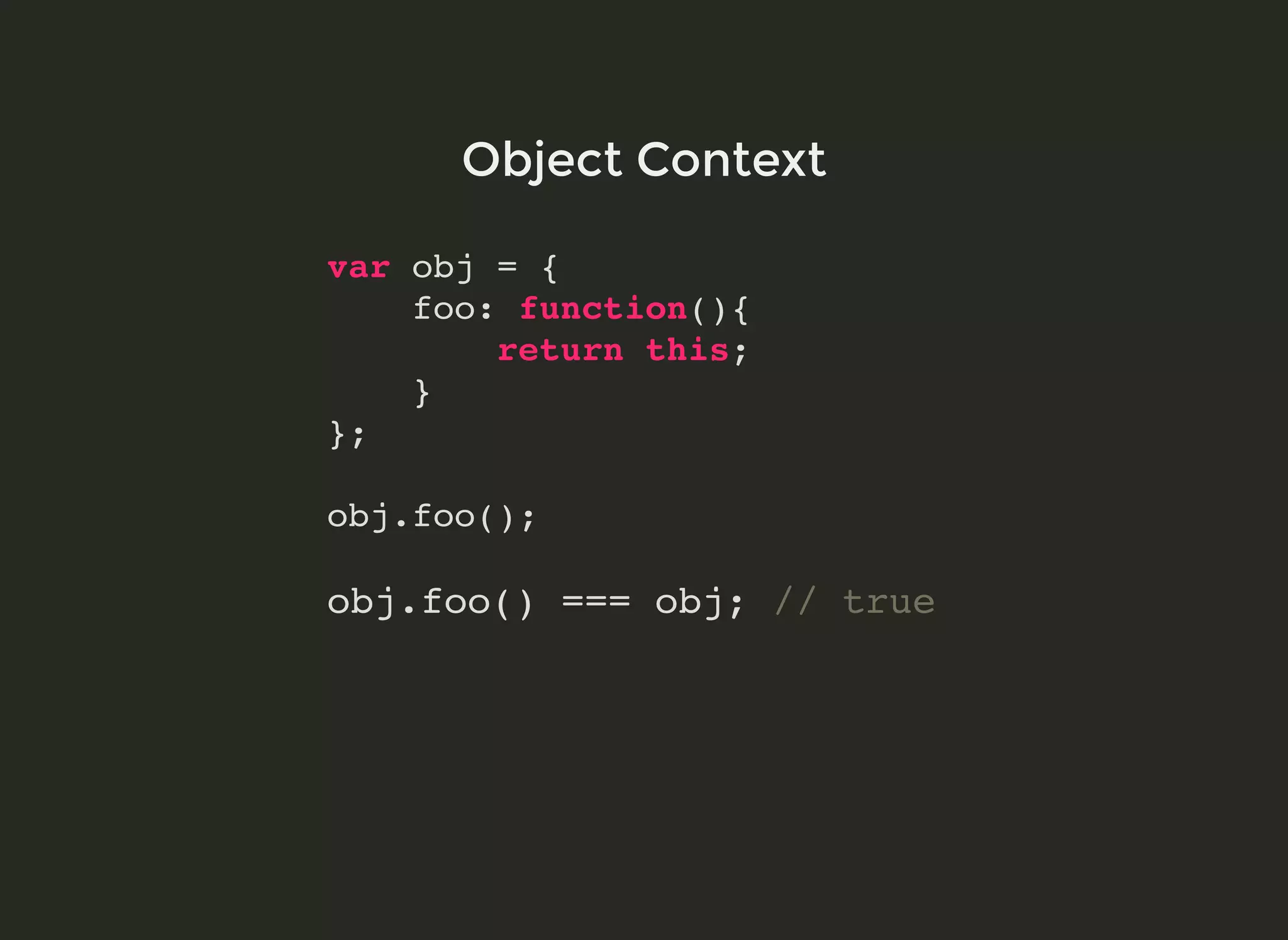
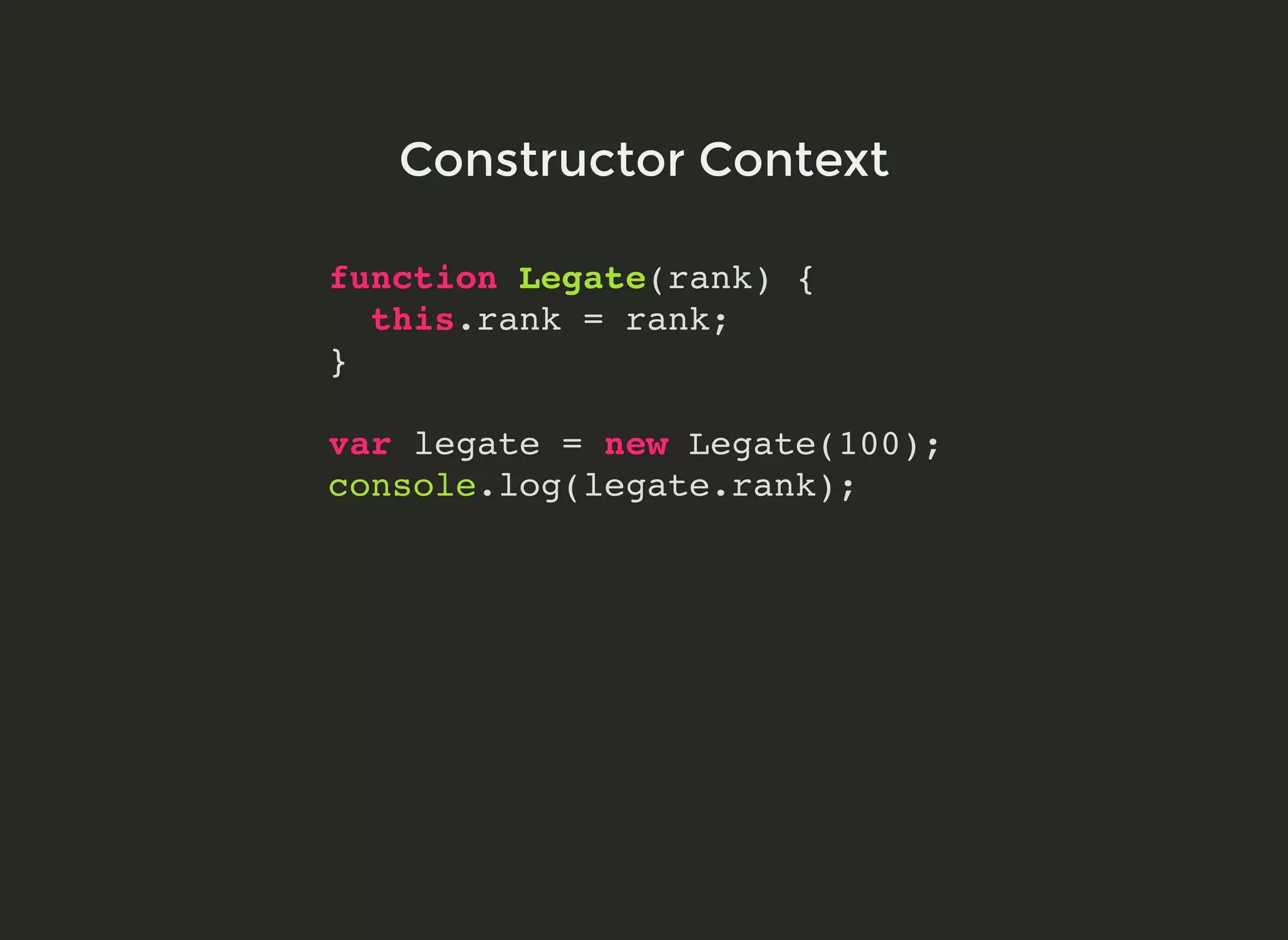
![Dynamic Function ContextDynamic Function Context function add(c, d){ return this.a + this.b + c + d; } var o = {a:1, b:3}; add.call(o, 5, 7); // 1 + 3 + 5 + 7 = 16 add.apply(o, [10, 20]); // 1 + 3 + 10 + 20 = 34](https://image.slidesharecdn.com/js-fundamentals-angular-lodash-151006001110-lva1-app6891/75/JavaScript-Fundamentals-with-Angular-and-Lodash-32-2048.jpg)
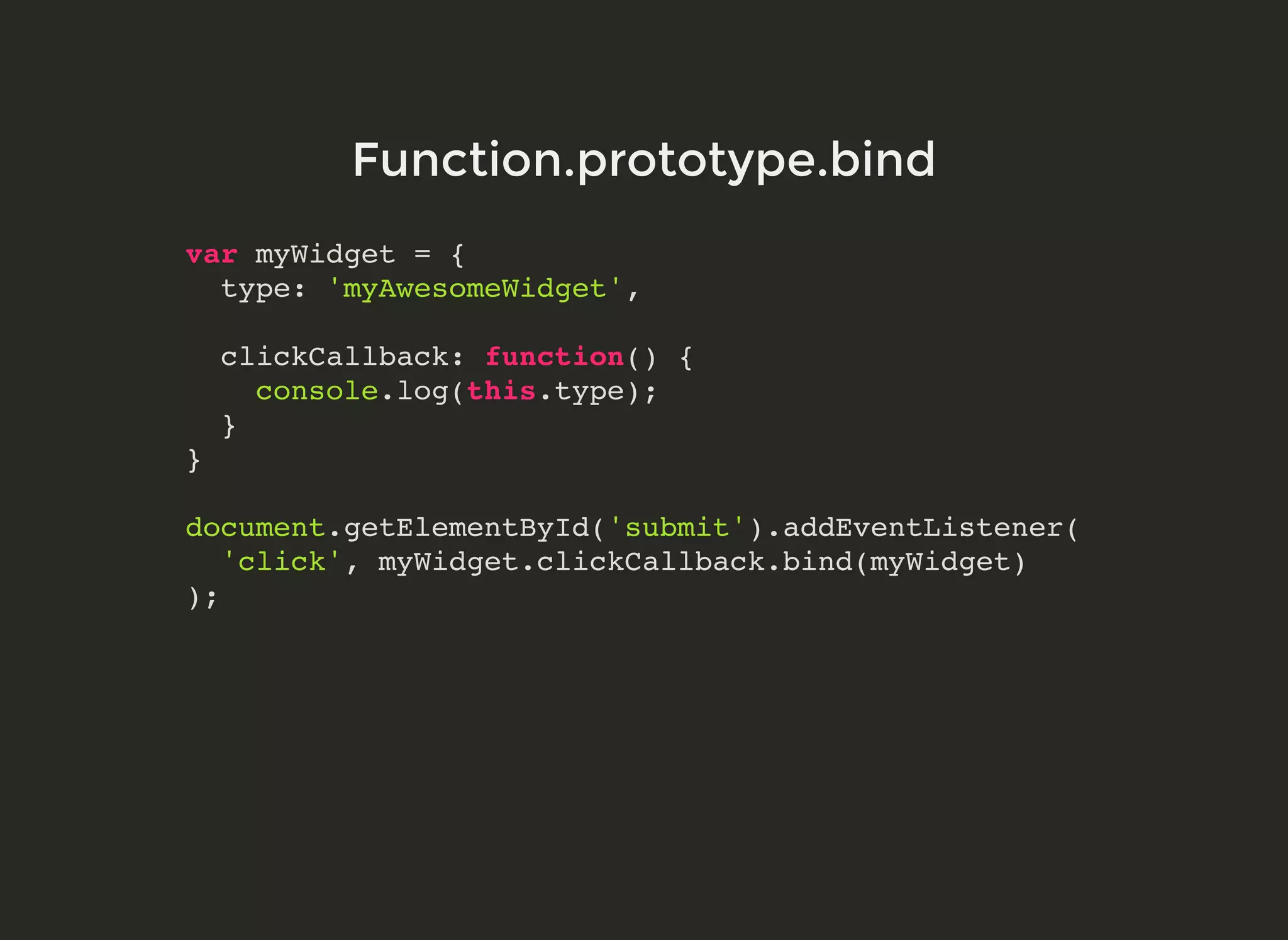
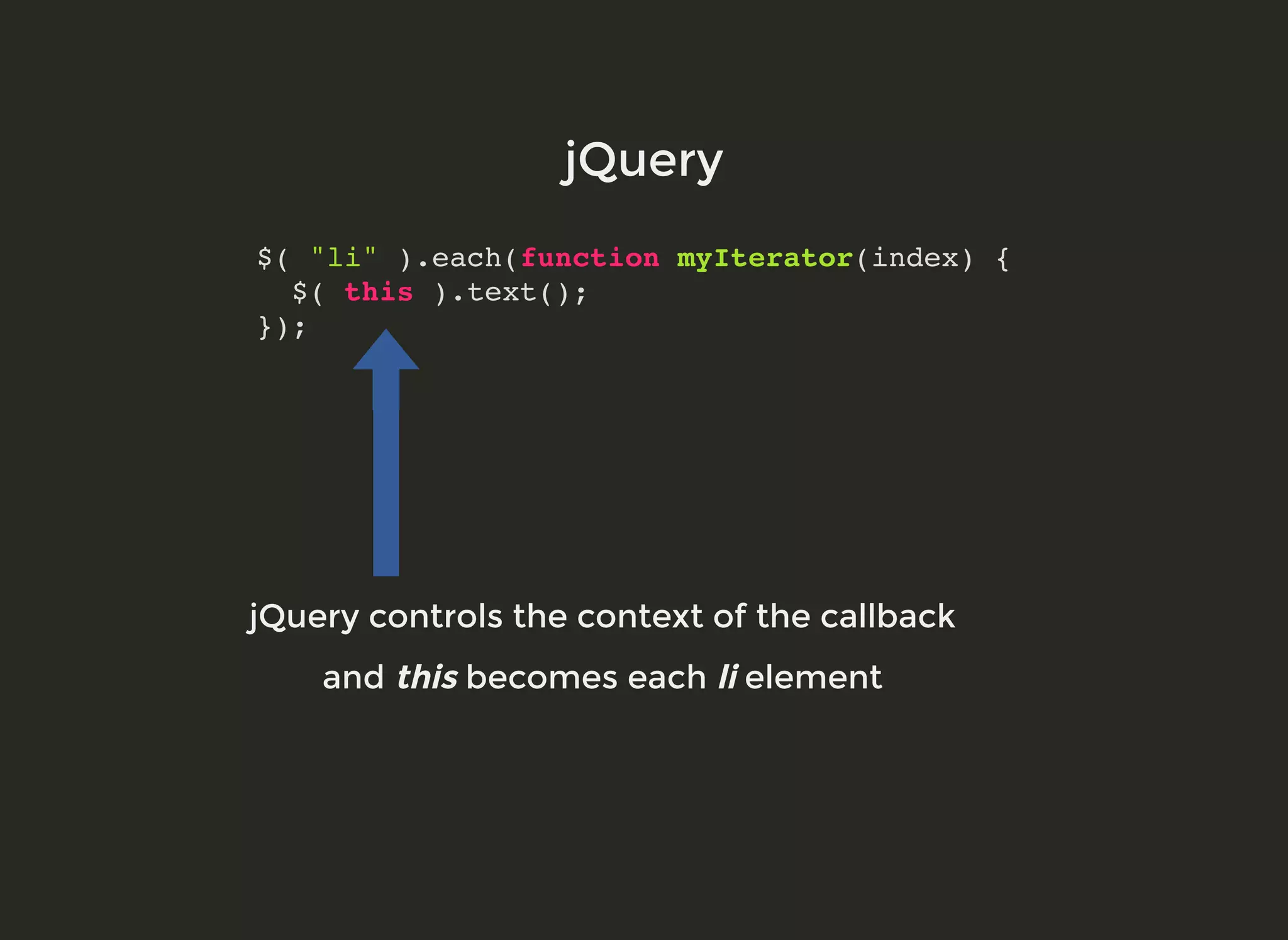
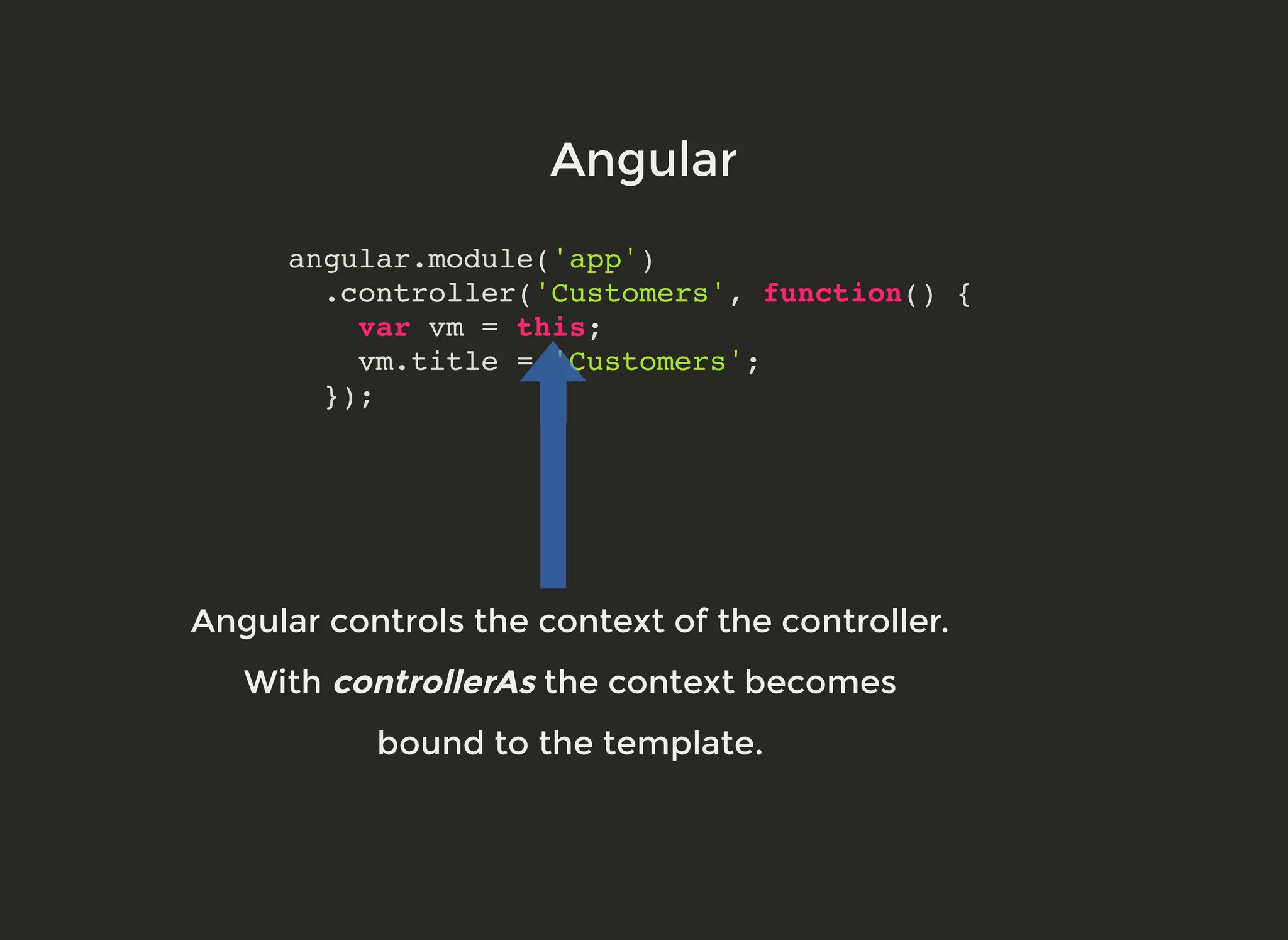
![angular.module('myApp') .filter('lodash', function() { return function(input, method) { var args = [input].concat( Array.prototype.slice.call(arguments, 2) ); return _[method].apply(_, args); } });](https://image.slidesharecdn.com/js-fundamentals-angular-lodash-151006001110-lva1-app6891/75/JavaScript-Fundamentals-with-Angular-and-Lodash-36-2048.jpg)
![import _ from 'lodash'; import angular from 'angular'; angular.module('app') .filter('lodash', function() { return (input, method, ...args) => ( _[method].apply(_, [input, ...args]) ) });](https://image.slidesharecdn.com/js-fundamentals-angular-lodash-151006001110-lva1-app6891/75/JavaScript-Fundamentals-with-Angular-and-Lodash-37-2048.jpg)
